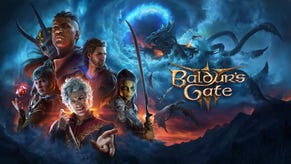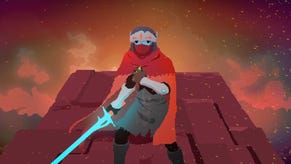Four simple ways to get more influencers covering your game
Innervate consultant Becky Taylor offers GDC 2017 attendees helpful advice on how to attract YouTubers and streamers
Influencer marketing is becoming an increasingly popular way for developers to raise awareness about their game, but many studios believe these channels to be somewhat out of reach.
Speaking at GDC 2017 in a session entitled 'The importance of working with influencers to grow your game's audience', Innervate consultant Becky Taylor observed that some indie developers believe the likes of PewDiePie et al are only interested in AAA games. However, she pointed to the viral success of The Binding of Isaac as proof that this is not the case.
Throughout her session, she offered advice on how developers can make their games more appealing to streamers and YouTubers, emphasising that this might be simpler than they think. First of all, it's crucial to make your game - and your studio - easily accessible.
"I've seen indies scammed by people who claim to be famous YouTubers just to get free games"
"A lot of times I see indies who don't have a website, or just a very basic website," Taylor told attendees. "I understand that because you're busy making a game you might not have time to set one up, but you need to have your contact info out there. There's been a lot of times I've only been able to contact indies via a Twitter that hasn't been updated in a year."
Taylor posits that if she as a consultant has had issues contacting such studios, streamers and YouTubers will have the same problem.
When it comes to streamers specifically, it's important they can easily tag your game in their videos via services such as Twitch.
"Not a lot of people know how to make sure your game is on Twitch," Taylor explained. "Twitch syncs its games with Giant Bomb's database, so make sure your game is on there. Twitch also has a form that lets you upload cover art to make it stand out. You want to start this a couple of weeks before release."
Taylor also suggested that developers should create their own influencer program: "It sounds hard, but usually all you have to do is say on your website that you're looking for influencers. You don't need to spend money on this."
Offering in-game items to streamers and YouTubers can be a good way to get them on board and "make them feel special".
Finally, Taylor encouraged developers to find ways to track which influencers were actually covering their games. Tracking links can been generated by free tools such as Bitly, while hashtags will help collect social media posts and identify who's talking about each title.
"If you're doing major influencer advertising, definitely talk to a lawyer - even just to get advice"
However, Taylor also warned against just giving away game keys. While it's easy to send out codes via services like Keymailer, she reminds devs that "you don't really know who's getting them".
She continued: "There are, unfortunately, people that have bought followers. They might have 90,000 subscribers but the average views for their videos might be just 15 people. I've seen indies scammed by people who claim to be famous YouTubers just to get free games.
"If you send a code to someone you know or have heard of, including the code in your initial email shouldn't be a problem. When it comes to a shotgun blast email, like if you're emailing 500 random influencers, I wouldn't include the key because that's frequently how indie devs find their games on sites like G2A."
Taylor adds that, in the US at least, free keys can affect whether or not bodies such as the Federal Trade Commission view influencer videos as advertising, opening developers to a world of potential legal problems.
"If you're doing major influencer advertising, definitely talk to a lawyer - even just to get advice," she suggested, before adding that even EA, Microsoft and Warner Bros ended up in trouble with the FTC because they didn't fully understand what they were doing.
"If you do your research, the FTC's rules on native advertising is to protect people from deceptive advertising practices. You need to make sure influencers tell their viewers the video is sponsored - not many people realise but giving out keys is technically sponsorship."
Taylor urged devs to not only inform influencers that they would need to declare receipt of a free copy of the game they're covering but also provide images that let streamers and YouTubers signify that their video is sponsored, pointing to EA's watermarks as a good example. She stressed that declarations of sponsorship ought to be in the video itself or in the title because "not a lot of people look at the description on YouTube".








